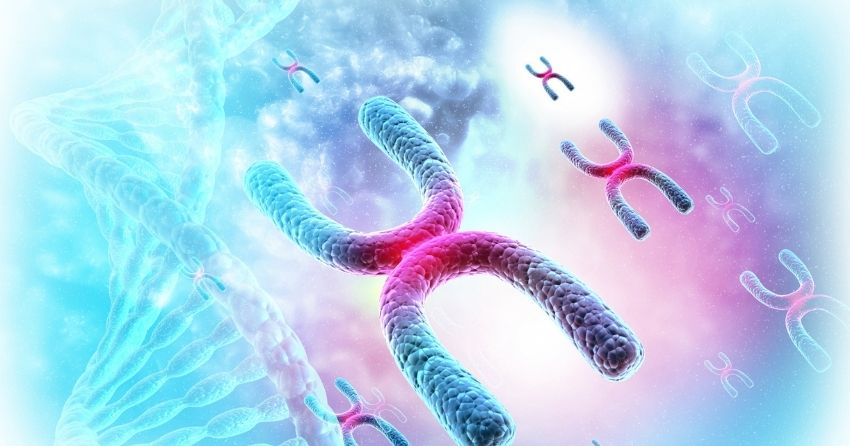Putting a Cap on Aging: Linking Spermidine’s Anti-Aging Effects to Telomere Preservation

Aging provokes a plethora of deteriorations, from the microscopic molecules that make up cells to the organ systems that make up our bodies. That’s because many of our cells’ pathways go defunct. This includes autophagy, our cells’ recycling and cleaning process, which declines with age across a large spectrum of model organisms and is thought to be responsible for a subset of age-induced changes.
In their article published in GeroScience, Wirth and colleagues show that 6-month administration of the natural autophagy inducer spermidine in the drinking water to aged mice is sufficient to significantly attenuate distinct age-associated characteristics, such as disease occurrence in kidney and liver. Also, spermidine was protective against hair loss, dysregulation of brain metabolism, and heart deterioration. Importantly, these anti-aging effects were linked to a novel observation that spermidine acts to preserve telomeres — the protective end caps of chromosomes that whittle away with aging — in heart tissue. This study provides more evidence of spermidine’s anti-aging effectiveness in animals, which is key to establishing protective means against age-related maladies in humans.
Preserving Autophagy Protects Against Aging
Aging is a natural process characterized by a progressive impairment of how our cells work, leading to the functional decline of our tissues and organs. For most organisms, there are disruptions to many of our cell processes, including dysfunction of the cell’s power generators (mitochondria), nutrient-sensing, and signaling pathways.
One major cell pathway that takes a hit during aging is autophagy. As we age, our cells do a poorer job of recycling cellular junk, which has negative impacts. But by restoring autophagy, cells can counteract aging features and even prolong health and lifespan in various model organisms. So, autophagy-inducing interventions have become a major field of aging research.
Spermidine Fuels the Fountain of Youth
One such candidate for inducing autophagy is the naturally occurring anti-inflammatory compound known as spermidine. However, levels of spermidine decline with age, and so supplementation is the only way to counteract this loss. When worms, flies, and mice have been supplemented with spermidine, researchers have seen life- and health-span extending effects. Yet, how exactly spermidine exerts its anti-aging properties remains a bit of a mystery.
To gain insight on spermidine’s anti-aging effects, a research team primarily based out of the Hanover Medical School in Germany looked at how spermidine supplementation fared in respect to several, translationally relevant age-related alterations in mice. “In our study, we investigated how prolonged spermidine administration affects organs commonly affected by aging and the process through which this occurs,” explains Professor Ponimaskin, the study leader. Specifically, they compared age-related alterations in aged mice that were treated with spermidine for 6 months to untreated aged mice as well as young mice.
Wirth and colleagues saw that spermidine mitigated several age-related deteriorations. For example, spermidine supplementation decreased aging-related hair loss. Also, “Spermidine supplementation ensured that the animals developed less kidney and liver damage and exhibited a better performance-enhancing glucose supply in the brain,” explains Ponimaskin. They also found that spermidine ameliorated severe heart tissue inflammation within aortic valves and aortas.

Telomere Preservation Is Linked to Spermidine’s Anti-Aging Effects
They then dug into what exactly spermidine was doing to cells in the heart. In particular, Wirth and colleagues were curious about the effects of aging and spermidine interventions concerning telomere length in the heart. Age-induced changes on molecular levels include accelerated telomere shortening, which happens in mammals from mice to humans. Telomere length represents a well-established biomarker to score the degree of age-induced deterioration, also for the cardiovascular system. Along these lines, preservation of telomere length using gene therapy was shown to confer cardioprotection in aged mice.
Wirth and colleagues demonstrated that even when applied to mice late-in-life, spermidine treatment was able to rescue age-related telomere shortening to levels comparable to young mice. “The telomeres in spermidine-supplemented mice were similar in length to those in young animals,” says Professor Ponimaskin. Importantly, late-in-life spermidine supplementation could decrease the number of nuclei — the chromosome-containing compartment of cells — with short telomeres in heart tissues, which is known to be critical in the development of age-related heart diseases.
These results further underline the potential of spermidine supplementation to impact age-induced deteriorations of the brain and heart as well as in hair. Wirth and colleagues propose, “Since late-in-life external administration of spermidine protects against many age-associated maladies and seems safe in humans, clinical trials may investigate the possibility of its use as an age-protective strategy.”
References:
Wirth A, Wolf B, Huang CK, et al. Novel aspects of age-protection by spermidine supplementation are associated with preserved telomere length [published online ahead of print, 2021 Jan 31]. Geroscience. 2021;10.1007/s11357-020-00310-0. doi:10.1007/s11357-020-00310-0







